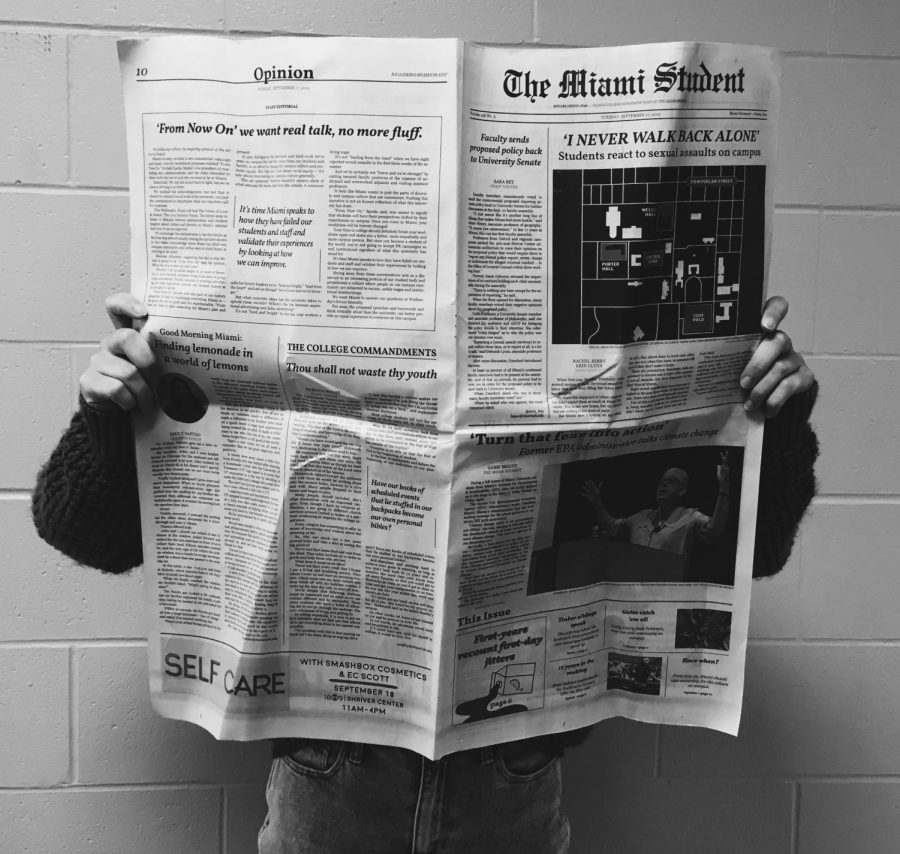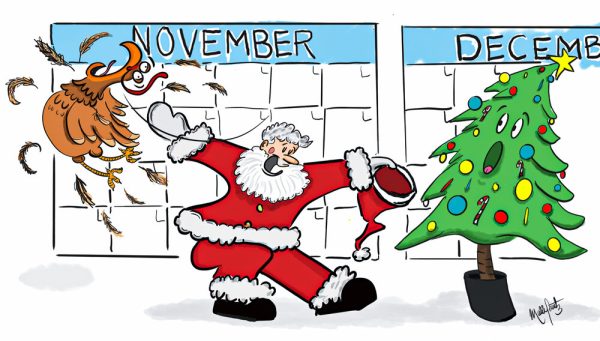Opinion: The Dying Art of Print
A student displays a printed copy of a local university’s newspaper,
With the use of television, radio, podcasts, and online newspapers on the rise, printed news is a thing of the past.
There is nothing like holding a paper copy of a newspaper edition and seeing the well-thought-out words covering the soft pages. Though I am personally saddened by the ill-fated future of this aspect of news, the fight for printed newspapers falls short when practicality is in question.
In today’s society, more news is consumed digitally, as it offers a quicker, more convenient way of staying up-to-date.
In a survey of 25 RHS students, 96% said they do not find themselves using printed newspapers. Most of these students responded that they get their news from either social media, online newsletters, or their parents.
Senior Carrie Gettler stated, “I get most news from the internet because it is so easy to just search for it on my phone rather than pay to have a paper copy delivered to your house.”
Brett Eads, senior, agrees that digital sources are more efficient and stated, “I get most of my news from online sources, just because it’s quicker and easier, and most news has bias so you can see both sides of the story quickly by going to multiple sources on an individual story.”
These shifting opinions have affected the world of publishing as a whole. Since 1994, weekday print circulation in the U.S. has dropped from 60 million to 35 million for combined print and digital users according to Washingtonpost.com. Along with this, newsroom employment has dropped about 40% in the last 20 years.
Despite the prevalent opinion that printed newspapers lack efficiency and convenience, I have found that printed copies of newspapers offer specific characteristics not found on a computer screen.
Printed news delivers a more reliable image of current events and establishes a greater amount of integrity. It is simple for anyone to post anything online and convince others to believe it. With printed press, however, it is a more difficult process to publish invalid news without someone catching it, though this unfortunate occurrence is inevitable.
Alexandra Frost, local freelance journalist, finds both beneficial and detrimental aspects of this shift to online sources.
Frost states, “. . . with digital writing, you can link to other publications and research quickly, which means that many publications have less of a high standard for authentic interviewing and reporting . . . This is a double edged sword because this can cause lazy reporting, or you can look at it as positive because many stories lead you to other links which further the reader’s understanding.”
Despite differing opinions, many can agree that the work put into a printed publication deserves recognition and appreciation.
Nothing compares to holding a freshly printed edition of a local or national news source. Next time you are searching for the news, purchase a printed publication at a nearby establishment such as Starbucks or Barnes & Noble for $1-$5 before these ink-covered sheets meet their demise.

Ainsley is a senior in her second year of journalism and is a Staff Writer and Editor. Other than journalism, she is involved in NHS, VAB, The Cappies, and is a Student Body Officer. Outside of school, you can almost always find her at a nearby coffee shop with her friends. She is excited to expand her knowledge of writing and share this passion with others.






